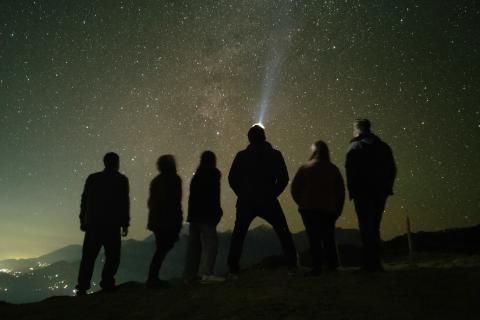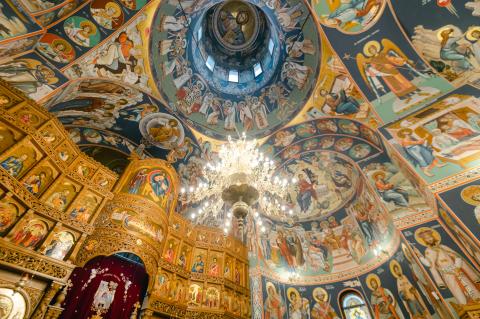
The human person has the ability to perceive through his senses. While sharing this power with other living creatures, human beings also possess the unique ability to see beyond and draw abstract conclusions, based on our ability to research, analyze, and even invent new ways of seeing. Concrete examples of our ability to see beyond are microscopes and telescopes, human inventions that inform us of realities otherwise unobservable to the human eye. Unaided observers would be justified in thinking that the sun and stars move through the sky around the earth. Technology, however, has helped us to understand that the sun and stars are enormously larger and further away than we would have imagined and that it is the earth that moves around the sun.
Attempting to view current events is the same. We see phenomena, and they are often real. We read about events around the world, and many of those reports are true. But as Christians, we need to use the telescope of faith to see how the phenomena and events unfolding around us fit within God’s grand scheme. We need the microscope of wisdom to go beyond the surface to encounter the deeper reality. Viewing the world through the lenses of faith and wisdom is no easy task, but unless we do so, we will mistake the moment for the meaning. God’s plan is mysterious but cannot be thwarted. Somehow – even through failings, difficulties, and things we condemn – some good is able to be achieved.
Perceiving providence is hard for priests who stand accused with no recourse given by their bishop.
Perceiving providential persecution is even more difficult. Over 130 incidents of vandalism have happened at Catholic Churches in the United States since May 2020, with a dramatic uptick following the recent Supreme Court leak.
At the same time, a doctoral candidate argues that Christians in the United States aren’t persecuted for their faith precisely, in an article sure to spark debate and discussion.
The feeling of confusion for Christians is exacerbated in a whole different way when horrible tragedies occur, such as the evil killing of children and teachers in Uvalde, Texas. Funerals are being held for the deceased children, most of whom were Catholic. While the problem of evil vexes philosophers, the sure and certain hope of the resurrection of the dead who have been baptized into Christ’s death provides a telescopic meaning, even amidst unimaginable grief.
And one man is helping by making customized caskets for the deceased.
New South Wales has become the final Australian state to legalize euthanasia and assisted suicide, rejecting a proposed amendment to allow healthcare organizations religious exemptions. Under the new law, doctors will be allowed to prescribe and administer such life-ending drugs without notifying the healthcare facility. Euthanasia and assisted suicide run counter to millennia-old ethical norms for healthcare professionals and represent a skewed vision of autonomy for both patients and practitioners.
In his most recent general audience, Pope Francis spoke about the dignity and importance of old age, offering an image that could be applied to all those who suffer at the end of their lives: such experiences are a time marked by “abandoning oneself to the care of others, starting with God himself.” The vocation of healthcare workers often puts them on the front lines of God’s providential care.
Just as healthcare providers have responsibilities to those entrusted to their care, so do pastors and bishops. The National Catholic Register recently interviewed San Francisco Archbishop Salvatore Cordileone concerning his decision to bar Speaker Nancy Pelosi from receiving Communion in her home diocese. Archbishop Cordileone explains that he has viewed the situation through the lens of pastoral care rather than politics and that his decision was the fruit of years of discernment about his own responsibilities, his conscience, and the steps that could be taken to avoid such a public act.
The University of Austin has been founded as a response to negative trends in modern academia, dedicating itself to open discourse and free thought, devoid of prior philosophic commitments. How are Christians to view this? On the one hand, it seems like such an institution represents a decisive step away from the overt secularism embraced by many universities. On the other hand, even a prioritization of open discourse and free thought indicates prior philosophic commitments. Is such a commitment-free institutional foundation truly possible? So while the University of Austin seems to represent a step away from problems in academia, is it a step in the right direction?


